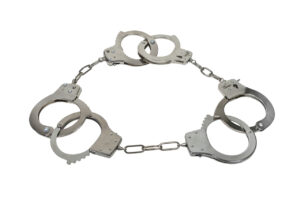After an arrest and subsequent criminal charge, you and your lawyer may confront one of the most significant choices in your case: whether to proceed with a trial or settle outside of court. The decision is complex, encompassing legal, personal, and professional implications.
This choice requires careful consideration of the evidence, understanding potential legal outcomes, and evaluating personal and financial impacts. With the guidance of an experienced attorney like Pedro Bernal, individuals at these crossroads have a far better chance to navigate the intricacies of this process.
Anticipating the Process of a Criminal Court Trial
Understanding the intricacies involved in this decision is vital. Here are some key factors to consider, each playing a significant role in shaping the strategy and outcome of your legal journey.
1. Evaluating the Strength of the Evidence
The nature and strength of the evidence against you are the first crucial factors to consider. A meticulous analysis of the prosecution’s evidence—including physical, digital, and eyewitness testimonies—is essential. Strong, compelling evidence might significantly increase the likelihood of a conviction, suggesting a cautious approach towards opting for a trial. Conversely, if the evidence appears weak, circumstantial, or subject to various interpretations, this could potentially strengthen your defense’s position, making the option of going to trial more appealing.
2. Understanding Potential Legal Consequences
Each criminal charge carries specific potential legal consequences, including a range of possible sentences. Fully grasping these potential outcomes is crucial to making an informed decision. Moreover, the opportunity for plea bargaining should also be evaluated. In some instances, accepting a plea deal can provide a more favorable resolution than the unpredictability and risks associated with a trial. This strategic decision should be made after a thorough discussion and analysis of all available options.
3. Considering Financial and Personal Costs
Trials can be a significant financial undertaking, encompassing legal fees, court costs, and potential fines. Additionally, the personal and emotional impacts of a trial, such as stress and the effects on personal relationships and professional life, are also substantial factors. Weighing these financial and personal considerations against the potential legal benefits and risks of a trial is a critical part of the decision-making process. The support of an experienced attorney can be invaluable in navigating these considerations.
4. Assessing Jury Perception and Trial Dynamics
The jury’s perception of the case and the dynamics of a trial are pivotal. How jurors interpret the evidence, the defendant’s presentation, and their biases can significantly influence the outcome. Additionally, the complexity of the legal arguments and their presentation during the trial are key elements to consider. A case that involves intricate legal principles or complex evidence may pose unique challenges in conveying the defense effectively to a jury.
5. The Role of Skilled Legal Representation
The experience of a seasoned defense attorney is instrumental in navigating the intricacies of a criminal trial. An attorney like Pedro Bernal, with extensive experience and a comprehensive understanding of both the prosecution and defense perspectives, can provide strategic insights and robust representation. The attorney’s ability to craft an effective defense, negotiate plea deals, and guide clients through the legal system’s nuances is crucial in determining the best course of action for your case.
Pros and Cons of Going to Court vs. Settling Outside of Court
The decision between taking a criminal case to trial or settling outside of court is influenced by several factors. Here’s a look at each:
Going to Court
Going to court allows full contestation of charges and the potential for complete exoneration. Likewise, proceedings are public record. However, going to court can be time-consuming, costly, and emotionally taxing. It can also lead to unpredictable outcomes and risk of conviction.
Settling Outside of Court
Settling outside of court can be beneficial as it often leads to more predictable outcomes, reduced legal costs, a quicker resolution, and less emotional strain. However, this option may involve some admission of guilt, limited scope to challenge evidence, and lacks the transparency of a trial.
The choice between trial and settlement hinges on the specifics of the case, legal strategy, and personal circumstances. It’s a complex decision that benefits from the guidance of an experienced attorney like Pedro Bernal.
Call Bernal Law If You Believe You May Need to Go to Trial for a Crime
The decision to go to trial in a criminal case involves numerous complex considerations and should not be taken lightly. At Bernal Law, we are committed to providing our clients with personalized and thorough legal guidance. If you are facing this critical decision, we encourage you to reach out to us for a comprehensive consultation.
We have experience on both sides of the courtroom. Along with the dedication to assist you in navigating this challenging process, we will help you make an informed and strategic decision. Call us at (619) 736-9092 or fill out our contact form.




